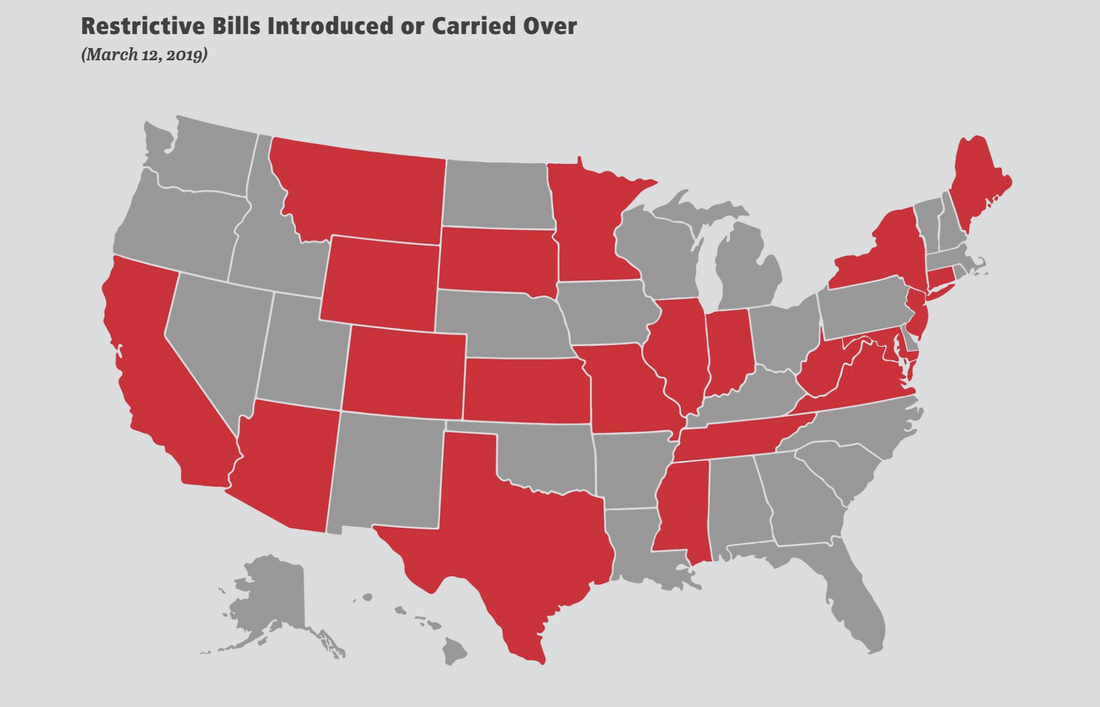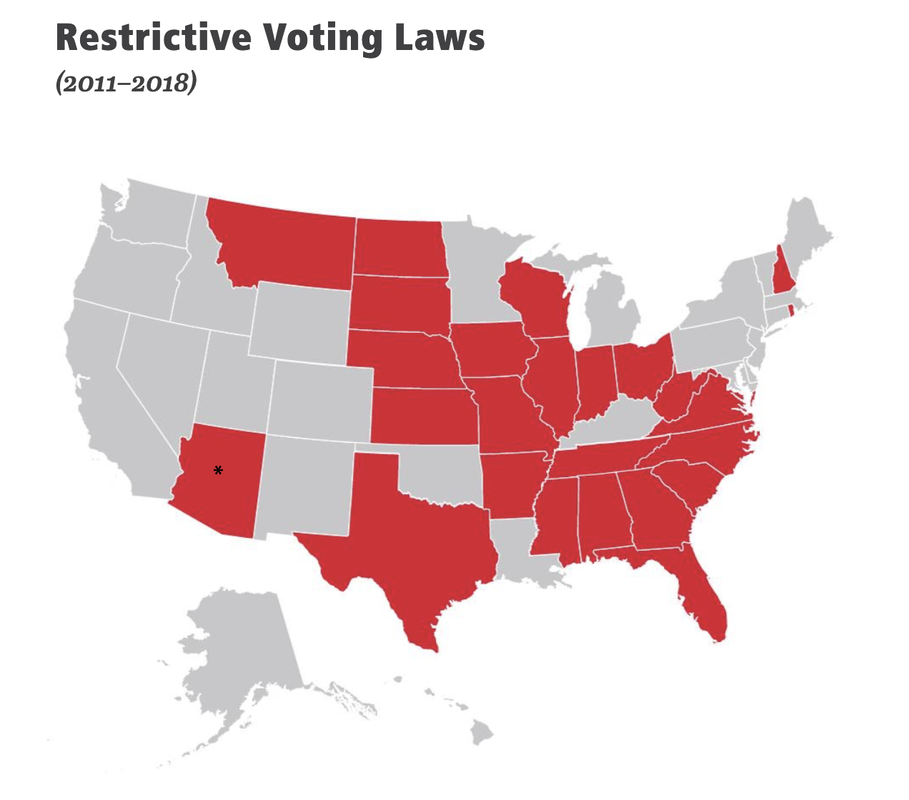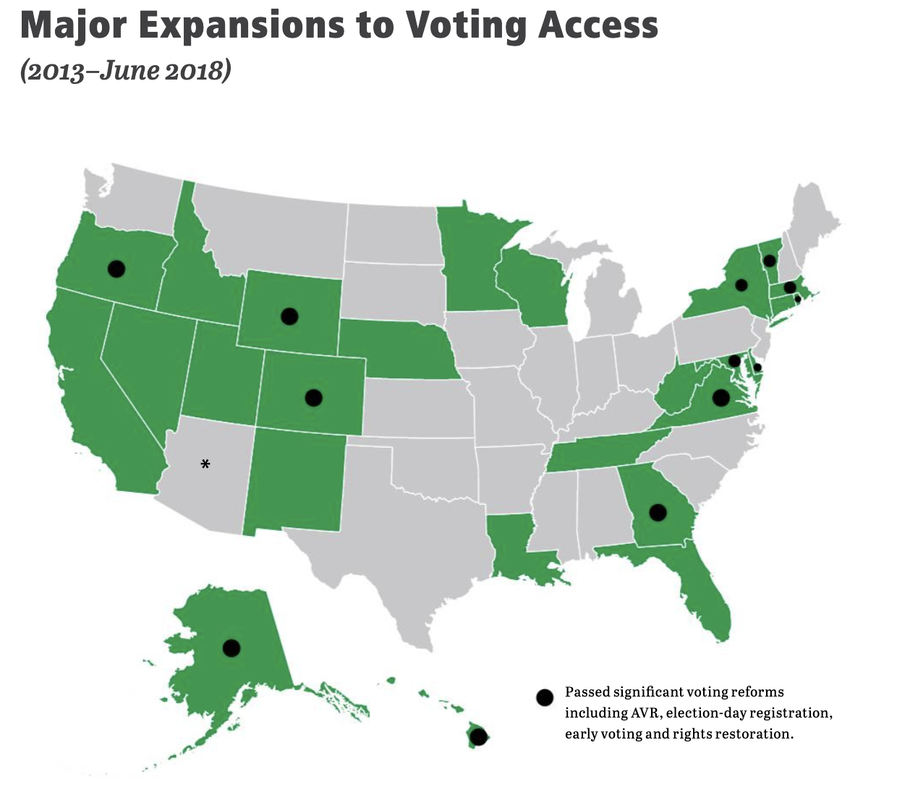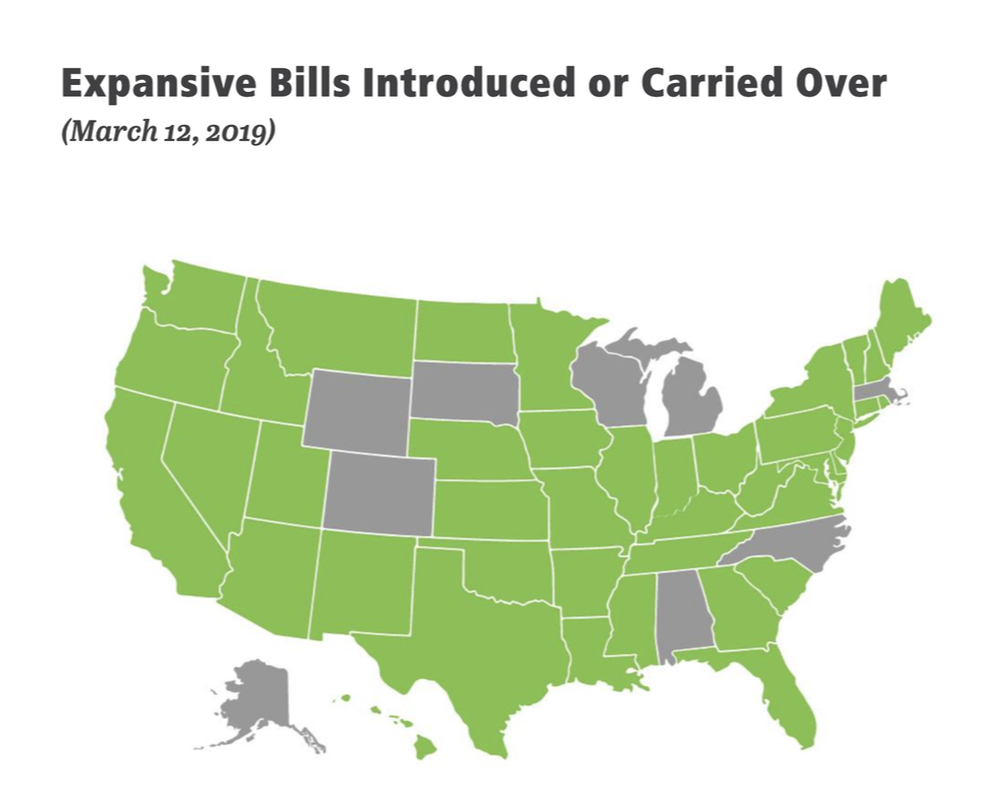Voting Rights in 2019: Summarizing the National Urban League’s 2019 State of Black America Report6/12/2019 Written by Sureshi Jayawardene and Serie McDougal, III The National Urban League’s (NUL) State of Black America report is the most comprehensive annual assessment of Black life in the U.S. The 2019 report, Getting 2 Equal: United Not Divided, the product of a partnership between the NUL and the Brennan Center for Justice, focuses on the suppression, expansion, and protection of the vote for Black and Latino communities. A variety of authors with diverse areas of expertise, including scholars, nonprofit leaders, Urban Leaguers, politicians, and corporate frontrunners, identify current mechanisms of voter suppression within a genealogy of the history of the vote. Using an easy-to-read illustrative timeline, the NUL presents significant wins in the right to vote. While several of these key decisions point to the wider racist and exclusionary policies disproportionately and inequitably targeting anyone who was not White or male, five of these stand out in regard to African Americans: 1) 1870: the 15th Amendment granting African American men the right to vote; 2) 1920: the 19th Amendment guaranteeing Black and White women the right to vote; 3) 1965: the passage of the Voting Rights Act under Lyndon B. Johnson banning discrimination on the basis of race and non-English-speaking status in voting practices; 4) 1971: the 26th Amendment lowering the voting age to 18; and 5) 2019: the passage of the For the People Act (H.R.1) by the House of Representatives addressing issues of voter election integrity, election security, political spending, and ethics across all three branches of government. The above timeline points to necessary and important strides toward a more equal and equitable nation and society, but the enormous time gaps between each major constitutional and legislative achievement also underscore how much further the US has to go to secure the constitutional rights of all of its citizens. The NUL accurately presents the current mechanisms of voter suppression as the continuation of a long tradition of targeting people of African descent with efforts to suppress their political voices and subsequently limiting their power. One of the biggest tools of voter suppression today is the use of digital means in foreign election interference. For example, the authors explain that before, during, and after the 2016 presidential election, a Russian troll factory used digital espionage to exploit political and racial tensions and manipulate Black votes by creating fake social media identities and hijacking the missions of contemporary Black social movements like Black Lives Matter. A Senate investigation into Russian election interference found that African Americans were specifically and deliberately targeted through tactics that included posing as legitimate activist groups, spreading disinformation, and deteriorating trust in democratic institutions. As 2020—a pivotal election and census year—approaches, some authors in the report raise concerns about the persistent problem of census undercounts, which traditionally and disproportionately impact Black communities, limiting their access to federal resources. A more precise issue related to census undercounts is political gerrymandering, which continues to be used as a tool to limit the voting power of Black communities. However, in an effort to address a rarely highlighted problem, several authors in this report emphasize the role of prison gerrymandering. This is a more sinister method of manipulating electoral constituency and further exploiting an already hyper-exploited group toward ends that often do not even benefit the prisoners. The report explains that Black people are overrepresented at between 30-40% of the nation’s prison population, yet they are counted as members of the often rural and predominantly White communities where prisons are located, instead of the communities where they lived before being incarcerated. Marc H. Morial, president and CEO of the National Urban League, succinctly articulates the severity and perverseness of the current attacks on voting rights for African Americans in this way: “Our rights are under attack by forces that are clever, sinister, diabolical, and intentional; and their allies run for the Supreme Court of the United States, to state legislatures all across the nation and around the globe, to allies inside the Russian Federation.” While some recent policies and bills have included necessary expansions to voting rights in certain states, others have been more regressive and thus resulted in further restrictions to the vote. The map below (from the Brennan Center for Justice) shows states where the vote is being threatened as a result of the introduction or carry-over of restrictive bills. According to the report, the past 10 years saw the enactment of a wave of laws restricting access to voting. This means that, since Obama’s election in 2008 when the Black voting rate matched or exceeded the White rate for the first time in U.S. history, states have taken significant steps to hamper African American access to voting, diminish their political voice, and undermine their constitutional rights. The National Urban League reports that, during the 2018 elections, voters in 23 states (approximately half of the country) faced harsher restrictions than they did in 2010. Additional restrictions have been passed since then. Despite these deliberate restrictions, ongoing litigation challenging voting restrictions can be found in Alabama, Arizona, Florida, Georgia, Indiana, Iowa, Kansas, Kentucky, Mississippi, Missouri, New Hampshire, North Carolina, North Dakota, Ohio, Pennsylvania, Texas, and Wisconsin. There are also several states that have expanded their voting process in the past five years alone (see map below). There are also many states that have seen the carry-over or introduction of more expansive bills, such as those focusing on access to early and absentee voting, modernizing the voter registration process, and restoring voting rights to those who lost them due to felony conviction. The map below (also from the Brennan Center for Justice) shows the popularity of such legislative efforts across the states: As these maps show, several states with restrictive bills/policies have also instituted efforts to pass more expansive policies. This data is current as of March 2019, according to the report.
The 2019 report offers several solutions by way of policy recommendations highlighting efforts either proposed or underway under the leadership of Black politicians, community organizers, private industry, and the Urban League itself. These include, but are not limited to:
0 Comments
|
Archives
April 2022
Categories
All
|




 RSS Feed
RSS Feed